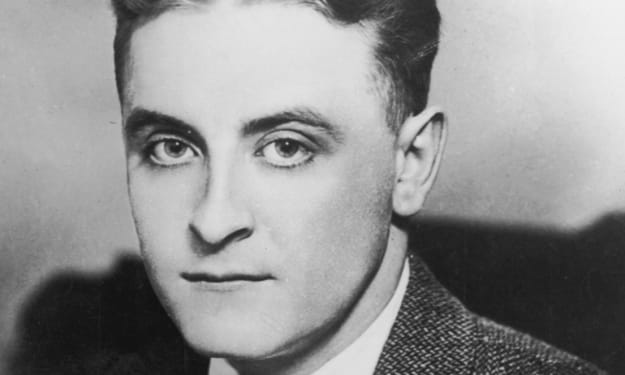"The Odyssey" by Homer
A Reading Experience (Pt.5)

It’s been about ten years since I first attempted my read of both the Iliad and the Odyssey. I would like to admit that I preferred the latter to the former because I was far more interested in the grand adventures of trying to get back to his beloved Ithaca rather than a bloody and brutal war in which I already knew the outcome before reading the book. The first reading experience I had of the Odyssey completely changed my entire view on the adventure genre. It changed my perception on what was possible for literature and it definitely made me believe in the fact that adventures could all grand, depressing, dangerous and purposeful at once. There was a great amount that I had to write down. I made a flow chart of each adventure Odysseus encountered on his ten-year journey back home and even rated them out of five on how dangerous I believed them to be. The most dangerous, in my fourteen-year-old opinion, was the cyclops. Even though I read this book about ten years ago, I have read it a few times since and I cannot help but losing myself in the rhythm of the seas every time I read it.
Now, you may be surprised to learn that my favourite character in the book is actually Telemachus. Telemachus is a character that I found to be a lot like his father, Odysseus and obviously, as heir apparent to Ithaca, he has a very important role. His own book though, is lost. The ‘telegony’ is the final book in the epic cycle and yet, what we see of him in the ‘Odyssey’ is enough to lay claim to his majesty of character. The best thing about Telemachus is his will to believe that his father will return home when Penelope is somewhat on the brink between obsessing over Odysseus and completely losing hope. When his mother’s mental health is at stake, Telemachus is hoping for a miracle. It represents both his belief in his own destiny and his youthful belief system in magic and miracles. Telemachus’s greatest fault just so happens to be that he is actually a lot like his father and when his father returns to Ithaca, we can definitely see that even more so that when his father is away. Telemachus is a character with the will to fight and the will to carry on, and by reading the Odyssey we can definitely see that of Odysseus. However, if you are to read on in the fragments we have of the epic cycle, it really does come back to bite Odysseus that his son is so much like him. Nothing ever ends well in Ancient Greek Literature, remember. Telemachus represents that fine line toed between youthful adventure, serious danger and absolute power. Telemachus is well aware that he is the heir, but he also displays almost child-like qualities of belief and powerlessness in the book, but then again he displays his understanding of danger when he and his father fight Penelope’s ‘suitors’ at the end of the text. Telemachus goes from being a pretty sidelined character to a man with certain powers that his father too possesses, completing the shift towards being the next Ithacan King.

A key theme in the book is definitely danger. There seems to be almost a constant threat of danger that underlines the text and Odysseus is expected, as the king, to know how to fight off this danger both effectively and efficiently. We see it most, I think, when it comes to the siren’s song. Odysseus already knows what to do when they approach the sirens and sets his plan into action before it is too late. The imminent danger to the reader, is almost unbearable to read as the king is tied to a mast and the ship makes its way through these heavenly-sounding mermaids of the wide open sea. Though it does not look like danger upon the surface, the acts of the king and the efficiency of those around him to tie him to a mast presents a very real danger indeed. The theme of danger also entails beasts and monsters of the ancient world. For example, the cyclops. The cyclops presents a very real physical danger because it looks so different to a human being. When Odysseus kills the cyclops, the reader believes he is out of danger, whereas Odysseus himself knows better than to believe that danger is not forever approaching him in his journey. He does not lay down his guard for a second. Odysseus is the main character who makes danger feel apparent to the reader and so, when we are reading the book, we have to rely on Odysseus’s actions and reactions to tell us when we are in danger - that is pretty much all the time. Danger is obviously used not just in order to make the book seem more exciting, but also to display a number of Odysseus’s combative talents that will come into more action when he is fighting off the ‘suitors’ that have squatted in his palace and wait for him to die as they try to court his wife Penelope. It impacts how you read this book because it makes it seem like Odysseus is some kind of hero that we must absolutely worship and put all our faith in. Whereas, if you really read into the book he is actually a very violent and pretty heartless man when it comes to everyone except Penelope.
This book has always meant an awful lot to me. It has always been one of the greatest adventures in all of literature that I have ever read. It has always been my point for fun and wild escapades into the great wide open sea. A sort of grand adventure that started all adventures after it. It impacted my later reading experiences into the genre of adventure because it was only after this that I began to investigate the greater, more prominent adventure novels of the nineteenth and twentieth centuries. It was because of this book that I would read stuff like “The Last of the Mohicans” by JF Cooper, “Moby Dick” by Herman Melville, “The Wreck of the Mary Deare” by Hammond Innes and many many more. But, the best thing about The Odyssey will always be its ability to make us believe in Odysseus’s success against some of the strangest and most imminent dangers that literature has ever seen.

I think far more people should give the Odyssey a chance. It is a book that takes you on a very wild ride, but I also think that the fact it is so old and written a little archaically would put some people off reading it. It is a brilliant book and a great journey on which you can learn a lot about the famed king of Ithaca. People understandably though, still read The Odyssey today because of the fact it has so much grand adventure, it is so much fun and it is so entirely dangerous and absurd. You cannot get more dangerous than fighting a cyclops, being hounded by a God, being threatened by another God and also riding through the siren’s song strapped to a mast of a ship. When I re-read the book, I would like to look at how The Odyssey obviously influenced some latter works of the adventure genre and what they all took from this epic classical piece.
"Tell me O Muse, of the man of many devices..."
"The Odyssey" by Homer
About the Creator
Annie Kapur
200K+ Reads on Vocal.
English Lecturer
🎓Literature & Writing (B.A)
🎓Film & Writing (M.A)
🎓Secondary English Education (PgDipEd) (QTS)
📍Birmingham, UK






Comments
There are no comments for this story
Be the first to respond and start the conversation.